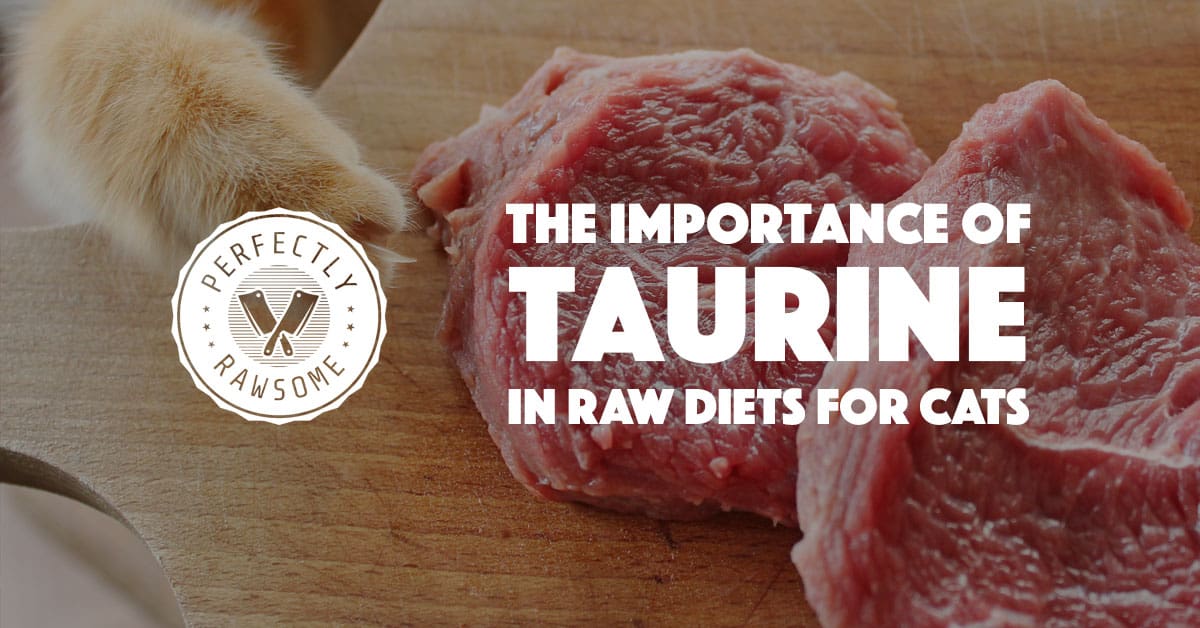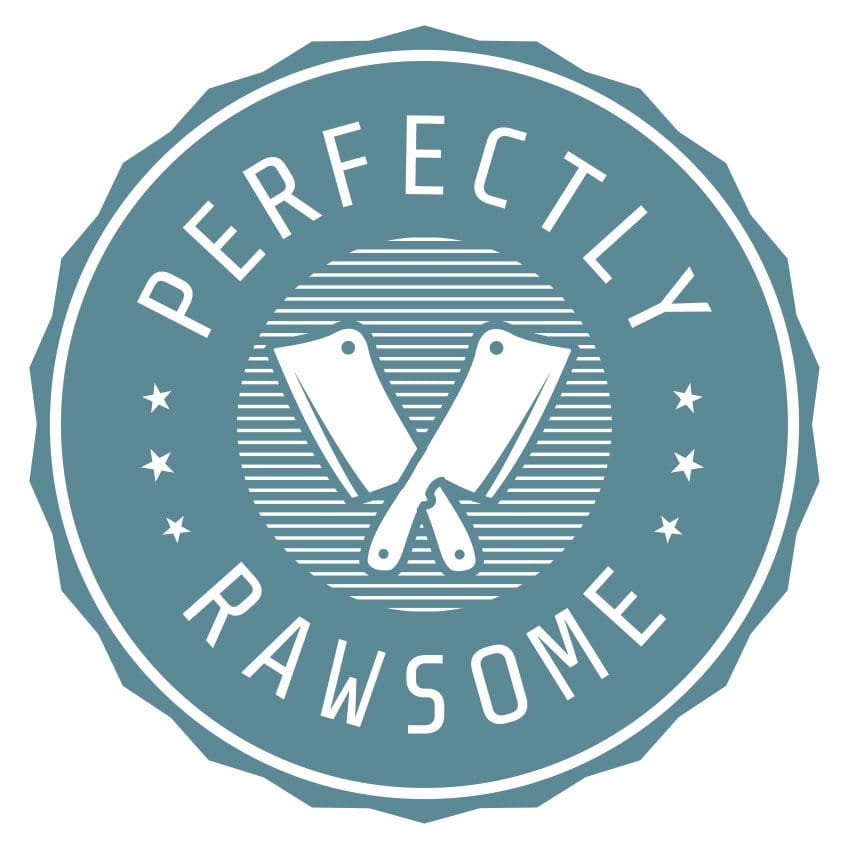Unlike dogs, cats cannot create their own taurine from other amino acid building blocks. Therefore, it is essential to ensure a cat’s diet provides sufficient amounts of taurine. Cats are unable to synthesize their own taurine due to the minimal activity of the enzymes Cysteine Dioxygenase and Cysteine Sulfinic Acid Decarboxylase. Taurine requirements for cats must be met by the muscle tissues in their diet.
Taurine is an essential amino acid for cats and kittens that is needed to maintain optimal eye and heart function. It is also found to be important for fetal development, growth, reproduction, neuro-modulation, sight, hearing, blood platelet, immune response, antioxidation, and production bile acid.
Sources Of Taurine In Raw Diets
Taurine is an essential amino acid that is only found in animal muscle and organ tissues.
Taurine Variances Per Protein
Different animal proteins will yield varying levels of taurine. It will will also vary between different muscle and organ tissues.
Taurine Requirements For Dogs
Taurine is not considered an essential dietary amino acid for dogs. Dogs are typically able to synthesize sufficient taurine when the sulphur amino acid precursors, methionine and/or cysteine, are present in adequate amounts in their diet.

Sources Of Taurine In Raw Diets
A well rounded Prey Model Raw (PMR) diet that uses whole cuts of meat will be abundant in taurine. When feeding a home-cooked diet, it is important to note that heat destroys more than half (about 65%) of the taurine content. Additionally, vegetables and grains contain almost no measurable amounts of taurine.
The National Research Council (NRC) for cats provides minimum and recommended amounts for taurine per 1000 kcal:
Adult Cats
0.08g minimum requirement
0.1g recommended allowance
Kittens
0.08g minimum requirement
0.1g recommended allowance
Optimize Taurine Intake Levels
Feeding whole prey is optimal for raw fed cats. A variety of small whole prey is high in taurine, well balanced, and the appropriate size for cats. Second to feeding whole prey, Franken Prey feeding is a way to provide whole cuts using a variety of proteins. These two feeding methods will provide adequate amounts of taurine.
Grinding meat decreases the taurine content by increasing the surface area of the meat that is exposed to air. This results in the oxidation of taurine which will decrease the overall available taurine. A taurine supplement is typically required when feeding a ground raw diet to cats.
Provide a Taurine Rich Diet
Muscle meat contains fairly high amounts of taurine. The amount of taurine in meat depends on how much work the muscle performs. Darker meat indicates hard working muscles, thus higher levels of taurine. The heart being the hardest working muscle in the body will contain the most taurine.
Larger animals such as cattle have a lower concentration of taurine. Smaller animals have a much higher concentration of taurine. Taurine is abundant in most fish, birds, and rodents.
Save Thawed "Blood" (Myoglobin)
Be sure to feed the thawed out "blood" (myoglobin) from thawing meat. When meat defrosts, the majority of the available taurine is left behind in the meat juices. This liquid is called myoglobin and contains many essential nutrients including taurine..
Taurine Variances Per Protein
Taurine levels will vary by protein based on the animal’s overall size. The amount will also vary between different muscle and organ tissues within the animal. Taurine is found in higher concentrations in harder working muscles and in smaller animals. Therefore, the highest concentrations will be found in smaller animal’s organs and heart. These taurine levels are organized by protein type below:
Tongue 1752mg taurine/kg
Lung 956mg taurine/kg
Spleen 874mg taurine/kg
Liver 688mg taurine/kg
Heart 652mg taurine/kg
Round Steak 362mg taurine/kg
Kidney 225mg taurine/kg
Heart 1179mg taurine/kg
Liver 1100mg taurine/kg
Dark Meat 1690mg taurine/kg
Necks 584mg taurine/kg
Backs 584mg taurine/kg
Leg 337mg taurine/kg
Boneless and Skinless Breast 159mg taurine/kg
Leg Meat 1780mg taurine/kg
Whole Mackerel 2070mg taurine/kg
Whole Herring 1544mg taurine/kg
Salmon Fillet 1300mg taurine/kg
Smelt 687mg taurine/kg
Leg Meat 473mg taurine/kg
Kidney 239mg taurine/kg
Liver 855mg taurine/kg
Lung 775mg taurine/kg
Kidney 773mg taurine/kg
Loin 610mg taurine/kg
Sirloin 560mg taurine/kg
Dark Meat 3060 ± 690mg taurine/kg
Light Meat 300 ± 70mg taurine/kg
CLOSING COMMENTS
Taurine is an essential amino acid for cats and kittens. It must be supplied via the diet in recommended amounts on a daily basis for optimal health. This is due to the fact that cats and kittens cannot synthesize their own taurine like dogs can.
Raw diets with a focus on whole animal proteins will provide sufficient amounts of taurine. However, it is recommended to add a taurine supplement when feeding a ground home-prepared raw diet. Taurine is depleted during grinding due to moisture loss and surface exposure to air.
